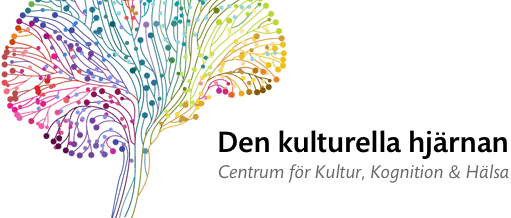En kontrollerad studie som visar att sex veckor med musikterapi har en signifikant dämpande effekt på ”agiterat” (upphetsat/oroligt) beteende hos patienter med moderat till allvarlig demens på vårdhem, och att de som fick musikterapi inte behövde lika mycket psykofarmaka som kontrollgruppen. (Christian Gold och medarbetare, 2013)
Titel: Individual music therapy for agitation in dementia: an exploratory randomized controlled trial
Författare: Ridder, Hanne Mette O.; Stige, Brynjulf; Qvale, Liv Gunnhild; Gold, Christian
Publikation: Aging & Mental Health
Volym: 17
Nummer: 6
Sidor: 667-678
Publicerad: 2013
Sammandrag: Objectives: Agitation in nursing home residents with dementia leads to increase in psychotropic medication, decrease in quality of life, and to patient distress and caregiver burden. Music therapy has previously been found effective in treatment of agitation in dementia care but studies have been methodologically insufficient. The aim of this study was to examine the effect of individual music therapy on agitation in persons with moderate/severe dementia living in nursing homes, and to explore its effect on psychotropic medication and quality of life. Method: In a crossover trial, 42 participants with dementia were randomized to a sequence of six weeks of individual music therapy and six weeks of standard care. Outcome measures included agitation, quality of life and medication. Results: Agitation disruptiveness increased during standard care and decreased during music therapy. The difference at ?6.77 (95% CI (confidence interval): ?12.71, ?0.83) was significant (p = 0.027), with a medium effect size (0.50). The prescription of psychotropic medication increased significantly more often during standard care than during music therapy (p = 0.02). Conclusion: This study shows that six weeks of music therapy reduces agitation disruptiveness and prevents medication increases in people with dementia. The positive trends in relation to agitation frequency and quality of life call for further research with a larger sample.Objectives: Agitation in nursing home residents with dementia leads to increase in psychotropic medication, decrease in quality of life, and to patient distress and caregiver burden. Music therapy has previously been found effective in treatment of agitation in dementia care but studies have been methodologically insufficient. The aim of this study was to examine the effect of individual music therapy on agitation in persons with moderate/severe dementia living in nursing homes, and to explore its effect on psychotropic medication and quality of life. Method: In a crossover trial, 42 participants with dementia were randomized to a sequence of six weeks of individual music therapy and six weeks of standard care. Outcome measures included agitation, quality of life and medication. Results: Agitation disruptiveness increased during standard care and decreased during music therapy. The difference at ?6.77 (95% CI (confidence interval): ?12.71, ?0.83) was significant (p = 0.027), with a medium effect size (0.50). The prescription of psychotropic medication increased significantly more often during standard care than during music therapy (p = 0.02). Conclusion: This study shows that six weeks of music therapy reduces agitation disruptiveness and prevents medication increases in people with dementia. The positive trends in relation to agitation frequency and quality of life call for further research with a larger sample.
Länk till original: http://dx.doi.org/10.1080/13607863.2013.790926
Kategori: Åldrande och demens Musicerande, sång Musiklyssnande

